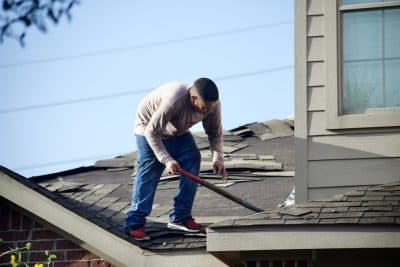
When it comes to selling property—whether a family home or a business premises—presentation, safety, and structural integrity are key factors influencing buyer confidence and market value. Yet one often-overlooked aspect that can dramatically affect both residential and commercial sales is pest control. A property plagued by rodents, termites, cockroaches, or wasps can quickly lose its appeal, leading to lower offers or extended time on the market.
For buyers, pests represent more than just a nuisance; they signal potential hidden damage, hygiene concerns, and future expense. For sellers, investing in professional pest control isn’t merely about eradication—it’s about protection, reassurance, and value preservation.
In competitive property markets, such as those where homeowners aim to sell house fast, ensuring a pest-free environment can be the difference between a quick sale and months of waiting. Below, we explore the top five ways pest control plays a vital role in selling both commercial and residential properties.
1. Enhancing Property Value and Appeal
A well-maintained, pest-free property immediately appears more desirable to potential buyers. When prospective homeowners or investors view a building, they are not just assessing its design or layout—they are looking for signs of care and upkeep. Evidence of infestations, such as droppings, damaged wiring, or wood rot, can quickly turn a potential buyer away. Regular pest inspections and treatments not only eliminate existing issues but also demonstrate that the property has been responsibly managed.
In residential sales, visible cleanliness and good maintenance are major selling points, especially when trying to sell house fast. In commercial settings, pest control is even more crucial, as business buyers must adhere to strict health and safety standards. Keeping pests at bay through consistent pest control measures reassures investors that the premises meet legal and operational standards, which can positively influence negotiations and final pricing.
2. Preventing Structural and Long-Term Damage
Pests such as termites, rodents, and wood-boring insects are notorious for causing unseen damage that can compromise a building’s structure. Termites, for instance, can silently weaken wooden beams and floors, while rodents often gnaw through electrical wiring and insulation. These issues can lead to costly repairs, insurance complications, and reduced property value. By investing in preventative pest management, sellers protect both the integrity and the long-term value of their property.
In commercial premises—particularly warehouses, offices, and restaurants—such damage can have significant financial repercussions. Implementing proactive commercial pest control ensures that infestations are detected early and mitigated before they escalate. For residential sellers, addressing these problems before listing the home is critical. It helps maintain the property’s safety and appeal while preventing potential buyers from walking away due to underlying repair concerns.
3. Meeting Health, Safety, and Legal Standards
Health and safety regulations play a crucial role in property transactions, especially in the commercial sector. Businesses are required by law to maintain pest-free environments to protect employees, customers, and stock. Failing to comply with these standards can result in fines, closures, or reputation damage. For commercial property owners, having a documented pest control plan in place can demonstrate compliance and reassure potential buyers or tenants that the premises meet legal obligations.
For residential sellers, hygiene concerns are equally important. Buyers expect clean, safe living spaces free from infestations that could pose health risks such as allergies or respiratory problems. Presenting official pest inspection reports during a sale can build trust and speed up the process, particularly if the goal is to sell your home quickly. In both cases, pest control isn’t just a practical necessity—it’s an essential component of responsible property ownership.
4. Improving Buyer Confidence and Reducing Negotiation Barriers
Buyers are naturally cautious, and any sign of pests—past or present—can create doubts about a property’s overall condition. This can lead to tougher negotiations, reduced offers, or even complete withdrawal from the sale. By proactively managing pest control and providing certification from qualified professionals, sellers demonstrate transparency and accountability. This builds trust, encouraging buyers to move forward with confidence.
For homeowners aiming to sell their properties quickly, trust and assurance are invaluable. Similarly, in commercial transactions, investors often conduct due diligence that includes pest management history. Having proof of regular pest control inspections can eliminate a common negotiation barrier and signal that the property is well-managed. Essentially, pest control becomes not only a maintenance measure but also a persuasive selling tool.
5. Maintaining Reputation and Business Continuity
In the commercial sector, reputation is everything. A single pest sighting in a restaurant, hotel, or retail space can result in lost customers and public embarrassment. Therefore, ongoing commercial pest control is a non-negotiable part of protecting a business’s image. When selling such a property, showing a clean track record of pest management reassures buyers that they are investing in a location free from reputational baggage or future compliance risks.
Residential properties can also suffer from stigma if pest problems are discovered during viewings or surveys. Word spreads quickly in local markets, and once a property gains a negative reputation, it can be difficult to shake. Effective pest control helps maintain a positive image, attracting serious buyers and reducing the likelihood of deals falling through. For anyone looking to sell house fast, reputation matters just as much as pricing.
Why Proactive Pest Management Pays Off
Whether selling a single-family home or a large commercial unit, pest control is an investment that pays dividends. It not only safeguards your property’s structure and hygiene but also boosts marketability and buyer trust. Proactive pest management is a strategic move that can shorten selling times, increase offers, and prevent unexpected complications during surveys or inspections.
For residential sellers, arranging a professional pest inspection before listing your home shows preparedness and care—qualities buyers notice. For businesses, consistent pest control records demonstrate compliance and professionalism, key factors in closing deals faster. In both cases, investing in pest prevention today can lead to smoother transactions and stronger returns tomorrow.
So, before putting your property on the market, make pest control a priority—it could be the key to unlocking a faster, more profitable sale.








